Indie Monthly: March 2024
Indies for everyone

I don't know what was in the water, but March was an exceptionally strong month for the indie scene. At the top of the indie space, we had a number of games getting boosted to new heights in player count, most notably Stardew Valley which soared past 100k peak players for the first time. Meanwhile, we had a particularly impressive crop of new releases. No matter what type of game you're into, there was something released in March that you'll love, without any clear overall victor. It's the kind of month you hope to see more often.
This edition features a few action games and RPGs (one of which has been getting a ton of attention), but I'm starting things off with a throwback 2D platformer I've personally been anticipating for a good long while.
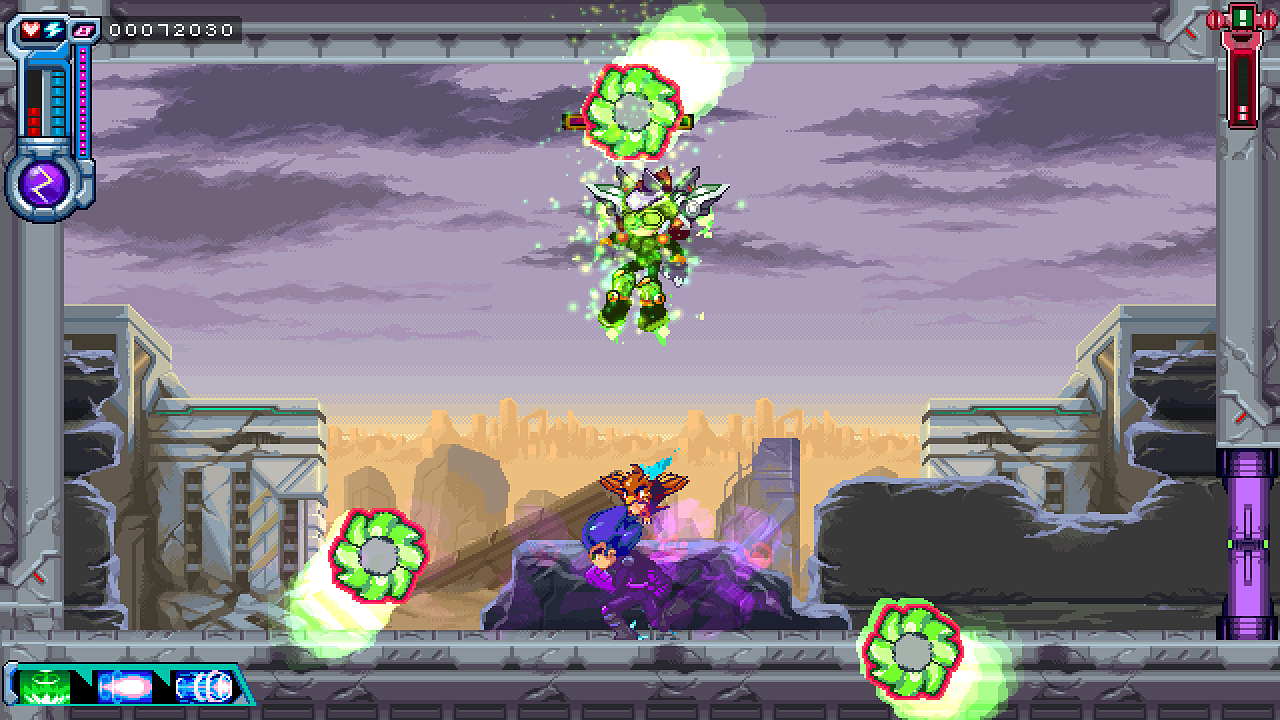
Berserk Boy
In the distant future, humanity has come under siege by a strange alien threat - Dark Energy, a sinister force that manifests in the form of aggressive Shades. Just when it seems like things couldn't get any worse, Dr. Genos, one of the greatest minds on Earth, appears at the head of an army of Shades, leading an invasion with the aid of a team of supervillains. But there is hope - Kei, an aspiring hero, stumbles across one of the legendary Berserk Orbs, granting him superhuman power and speed. Will it be enough to stop Dr. Genos?
Berserk Boy is a modern take on the Mega Man Zero subseries, similar to last year's Gravity Circuit. That was an excellent game, but Berserk Boy tops it and many other neo-retro platformers. By default, Kei can zip rapidly between targets and then unleash a follow-up blast on any survivors. If you've seen footage, it looks hard, but the controls are both tight and intuitive and anyone with platformer experience will get a hang of the controls very quickly.
That's just for Kei's default form, though - as he defeats bosses, he will acquire four additional Orbs that unlock additional suits. These enable Kei to dig through packed dirt, latch onto platforms, take down barriers, and even fly. But these aren't just movement powers - each suit has unique combat abilities, such as Flame Drill's hand-to-hand combos, Ice Kunai's ranged strikes, and Mine Buster's lock-on attacks. The move sets are very distinct but easy to learn, and an advanced player can switch between suits on the fly to deal with specific threats.
Berserk Boy is a gorgeous game, with some of the most detailed sprites I've ever seen. The animation is every bit as fluid as the gameplay and the backgrounds are similarly detailed. And the developers are justly proud of the music, which is also top-tier.
Overall, Berserk Boy is simply stellar - one of the best platformers I've seen in years. It's an absolute must for anyone with nostalgia for the glory days of Mega Man, but anyone with a passion for 2D platformers should get it too.
Berserk Boy is available for Nintendo Switch and PC via Steam. A copy was provided for this review.
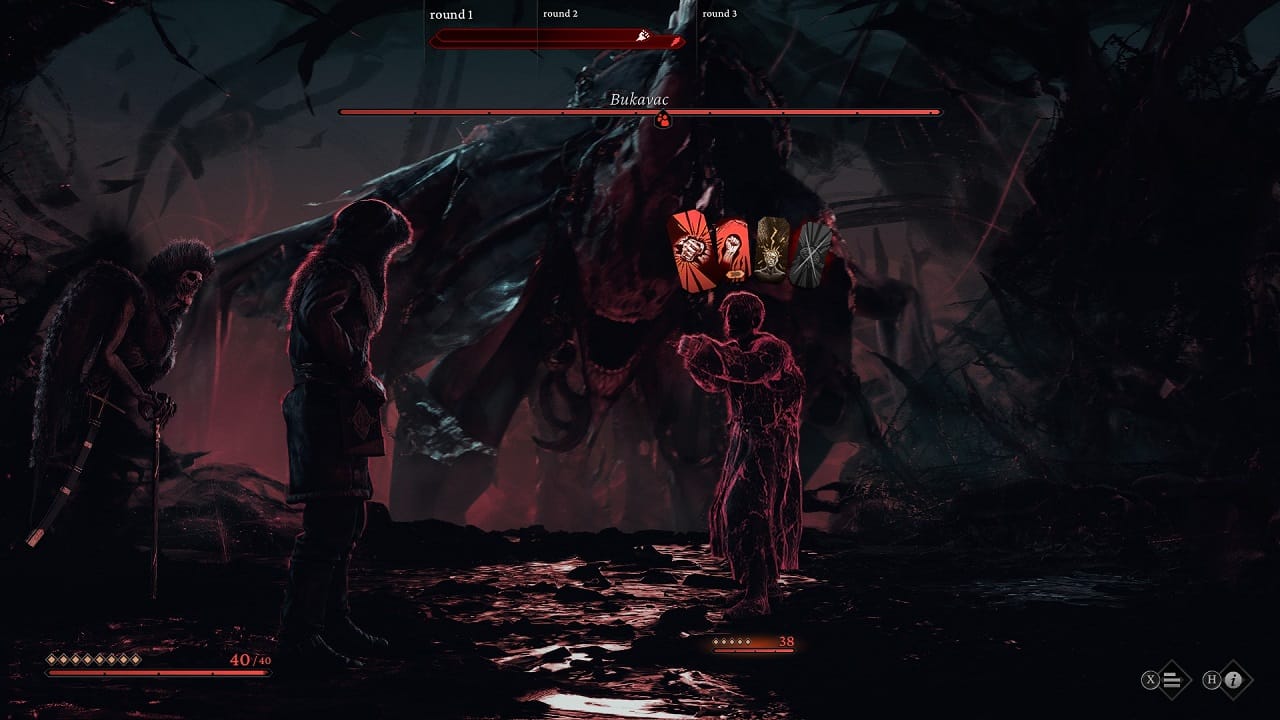
The Thaumaturge
Warsaw, 1905. The Kingdom of Poland is but a memory, long since partitioned by Prussia, Austria, and Russia. The city buckles beneath the iron hand of the Russian Empire, its ostensibly autonomous government serving only to enforce the will of the Tsar. The Imperial family deals with revolution while the First World War looms overhead - but that's only half the story. Beneath the physical world, a more enigmatic threat grows, one that only feeds on the growing chaos.
Wiktor Szulski is a thaumaturge, a man with the inborn gifts to sense and manipulate the emotions of others. He has returned to Warsaw to attend his father's funeral, only to learn that his father's grimoire - the tool that allows a thaumaturge to direct his powers - has gone missing. The search for this relic leads Wiktor into the underworld of Warsaw, a place haunted by malign beings that only a thaumaturge can defeat and master.
The Thaumaturge is an RPG with a particular focus on its story. Wiktor is a bit of a mystical detective, with many tools at his disposal to handle problems. His supernatural perception allows him to find and analyze objects for traces of the owner's emotions. Doing this will eventually lead to a conclusion, which unlocks dialog options that can be used to solve quests. Alternatively, Wiktor can use his powers to accomplish the same thing by forcing an emotional state on someone. Advancing through the skill tree enhances his ability to analyze objects and manipulate NPCs.
Combat is also an option to solve many quests, and The Thaumaturge features a combat system that is familiar but with some twists. Wiktor is aided by salutors, the spirits he has defeated. He gets two actions - one for himself and one for the salutor - each of which takes a specific amount of time to execute. Wiktor can also foresee all of his opponent's actions, allowing the player to coordinate attacks and reactions. Wiktor's attacks can be further customized with added effects, allowing for various approaches to fights.
Overall, The Thaumaturge has the feel of a story-driven CRPG but with the quicker pace of its console brethren. It offers an intriguing story in a novel, well-detailed setting, with lots of ways to approach the game. As such, it is highly recommended for RPG fans regardless of what type of RPG you favor.
The Thaumaturge is available for PC via Steam, Epic, and GOG. A copy was provided for this review.
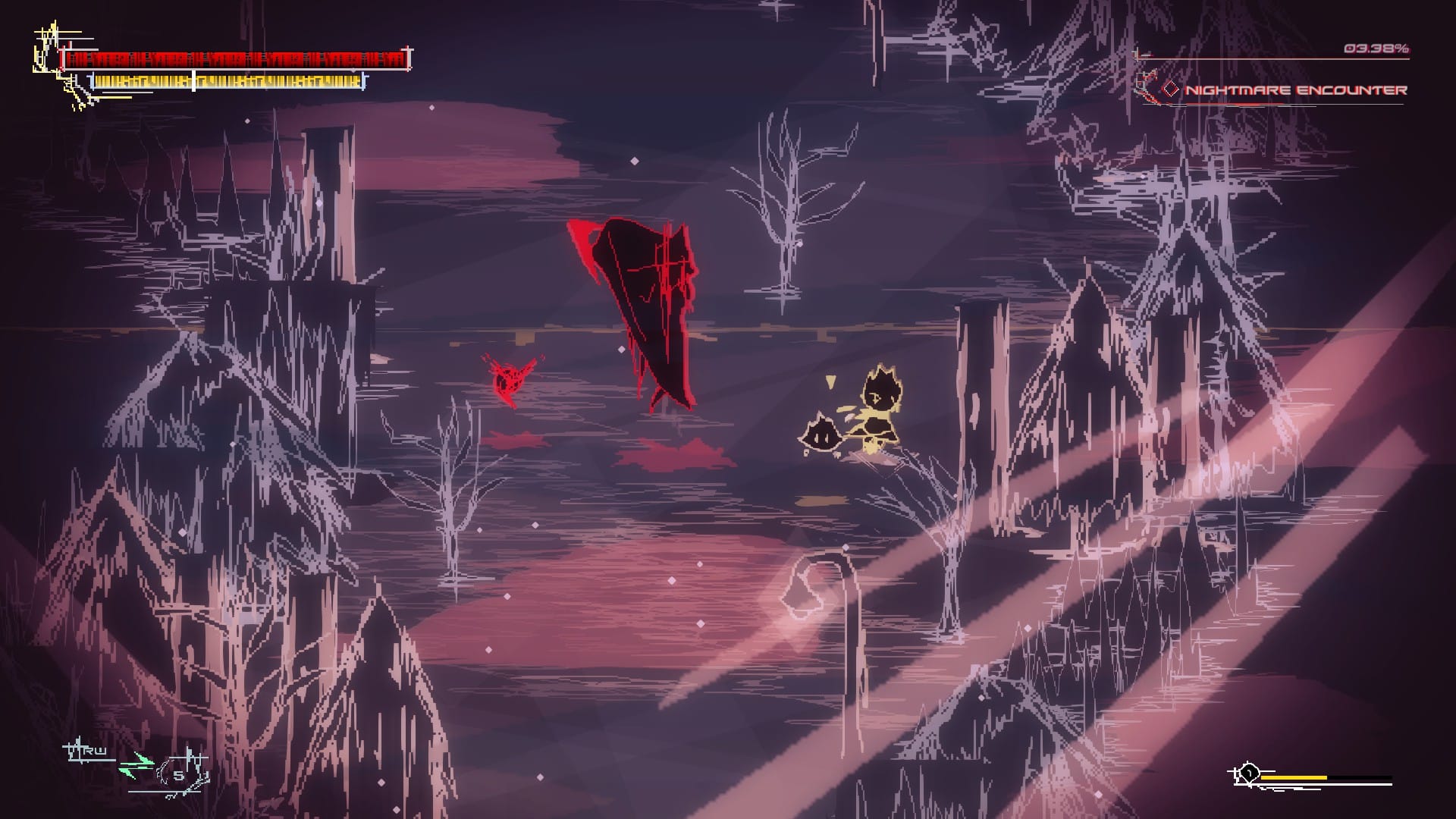
Death of a Wish
Paradiso is a prison for dreamers, where the denizens are constantly tormented by nightmares made manifest. What order exists in Paradiso is provided by the Sanctum, a totalitarian cult that holds back the darkness through force and fear. Into this world walks Christian, a young man dressed in the golden robes of the Sanctum but now an enemy of the cult. He was born to be a chosen one, but he has instead tasked himself with defeating the leaders of the Sanctum in a desperate play to pull Paradiso out of the corruption.
Death of a Wish is a top-down action game with mechanics built around melee combat. Christian possesses light and heavy attacks, a dodge roll, parry, and a selection of special attacks. Successful parries and attacks eventually break an opponent's guard, stunning them and leaving them open to powerful charge attacks. Christian is quite fragile and healing is scarce, so mastering this combat loop is absolutely essential. He can spring back easily from a loss, but falling increases his corruption, and there are story consequences to letting that get too high.
There's a lot of customization in the combat. The player can switch between two Arias, or combat spells. Each Aria has a primary and secondary element, familiar, and set of supporting abilities. It's definitely worth experimenting with the Arias to find a set of suitable attacks - in a game with such unforgiving combat, having a weapon that suits you counts for a lot.
The scratchy, high-contrast graphical style is definitely the stand-out aspect of the game. On the one hand, it suits the game's dark and dreamy story perfectly. On the other hand, it's not always the easiest thing to look at. I personally got used to the visuals pretty quickly, but if you're not sure, a spin through the demo might be a good idea.
Death of a Wish is available for PC via Steam and Itch.io. A copy was provided for this review.
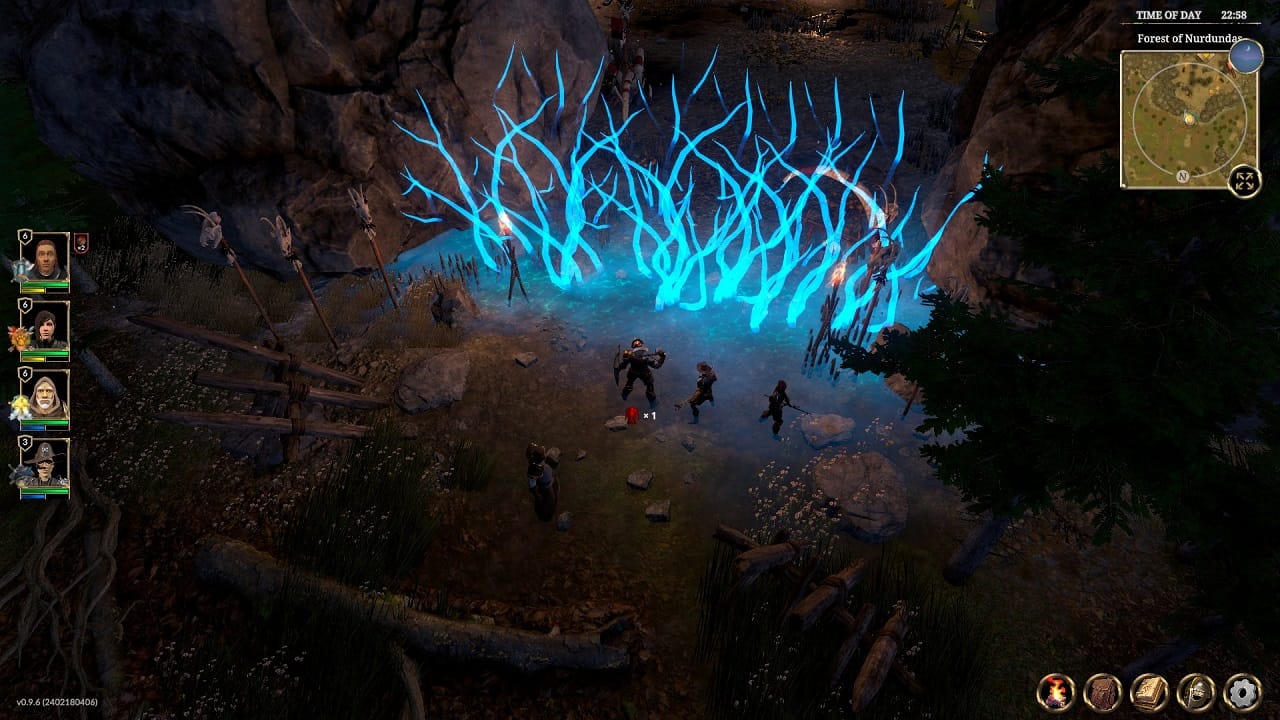
Zoria: Age of Shattering
The land of Zoria has been embroiled in a brutal war between the domains of Elion and Iziria. The war had been at a standstill until the sorcerous rulers of Iziria called upon the dark arts to turn things in their favor. The famous defenses of Elion have fallen, and half of their lands are now under Izirian control. You are the commander of a fortress that fell to Iziria's undead minions, one of the few to survive the onslaught. Your mission is to rally whatever heroes are left in Elion and launch a desperate attack into Iziria before their arcane experiments destroy all of Zoria.
Zoria: Age of Shattering can be divided into two very different parts. The core gameplay is not all that different from most other CRPGs, now or in the past. The player gathers a party composed of ten different classes and then leads them on quests. Combat is a tactical turn-based system, with characters gaining access to various attacks and spells as they gain levels.
Outside of combat, things are very different, with more of a focus on management. While characters can heal through items and spells, most recovery will be done by resting. This consumes precious resources, but it also grants opportunities to enhance the party. Each class has a unique camp ability which - in exchange for resources - allows them to recover from status conditions or grant minor buffs.
After a few hours, the player gains access to a small fortification which adds a further management element. The player can recruit new characters, taking advantage of their passive class abilities to complete missions that no one else can. Meanwhile, characters not in the active party can be dispatched on their own missions or sent for training. It gives a sense that the player has some control over the world.
Management elements aside, Zoria has a pretty old-school CRPG design aesthetic. It is definitely a game for people who liked RPGs of the 2000s.
Zoria: Age of Shattering is available for PC via Steam. A copy was provided for this review.
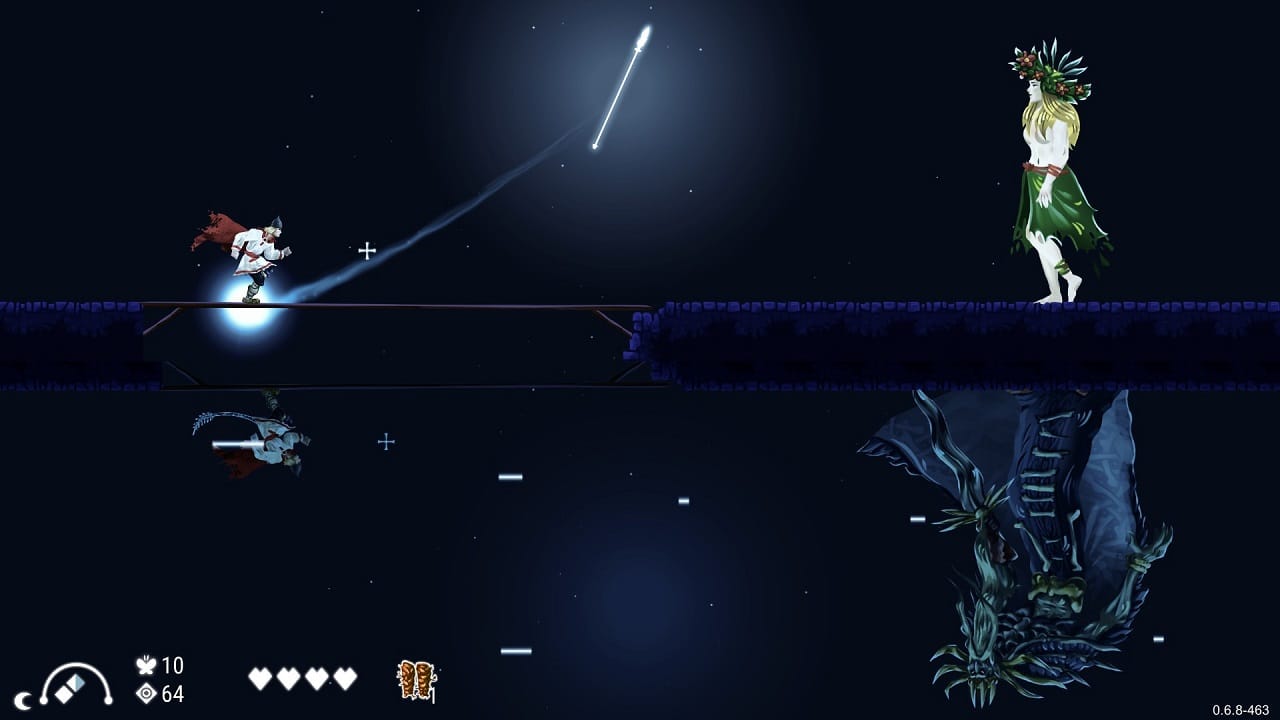
Slavania
The young hunter Alyosha returns to his village to find that it has been laid to waste by a great and terrible monster. Narrowly escaping with his life, he finds his way to Novgorod, where the voivode has been carrying out a monster hunt. While he's no warrior, Alyosha joins in the hunt in hopes of slaying the beast that destroyed his home. Aiding him in the quest is a magical spear that has granted him exceptional combat skills and can even bring him back from the dead. Little does Alyosha know that the spear is taking his soul, and he'll need to end the hunt to get it back.
Slavania is a Metroidvania platformer with a heavy Slavic influence. The player explores the countryside, seeking out information that will eventually lead to the monsters terrorizing the region. Along the way, Alyosha gains experience used to acquire new skills and equipment.
As with any Metroidvania, movement abilities are a key part of the experience, and in Slavania those abilities are all based around Alyosha's spear. He begins with the ability to throw his spear, stick it into a wall, use it as a platform, and then recall it to his hand. He acquires additional abilities as the narrative proceeds, eventually getting the ability to teleport to wherever his spear has landed. The movement abilities are intuitive, though throwing the spear is pretty imprecise and can take some getting used to.
Ultimately, Slavania is fairly typical for its subgenre, distinguished mainly by its setting and aesthetics. Dedicated fans of Metroidvanias will like it, but others might want to look at the demo first.
